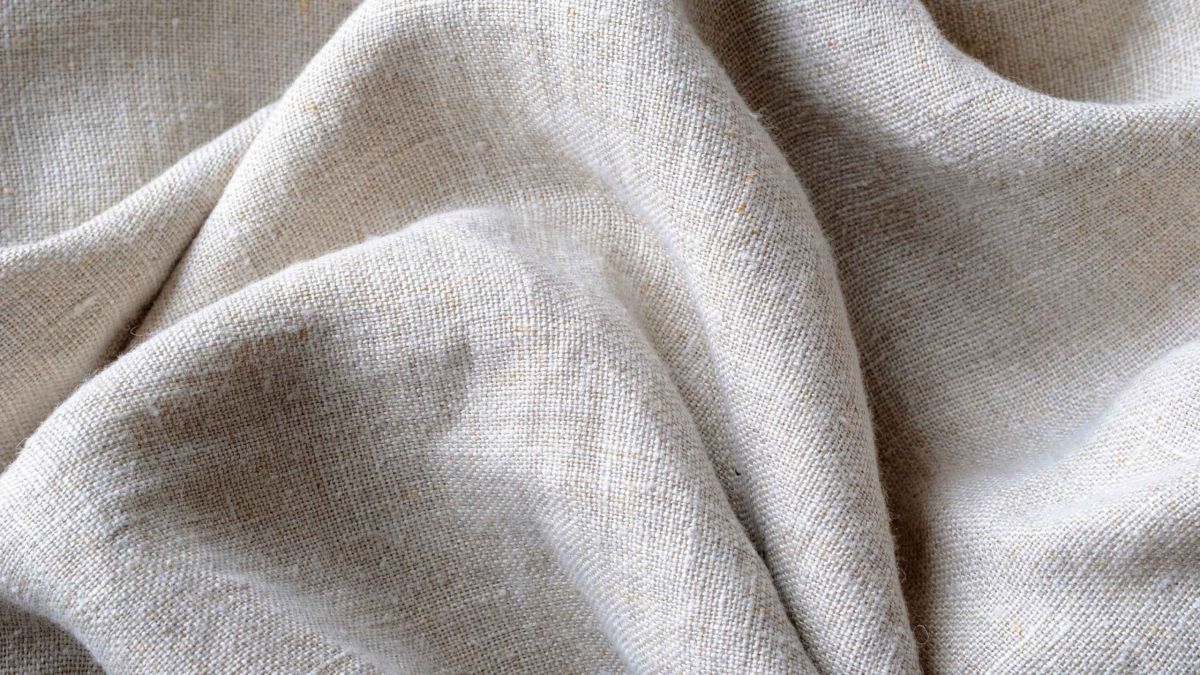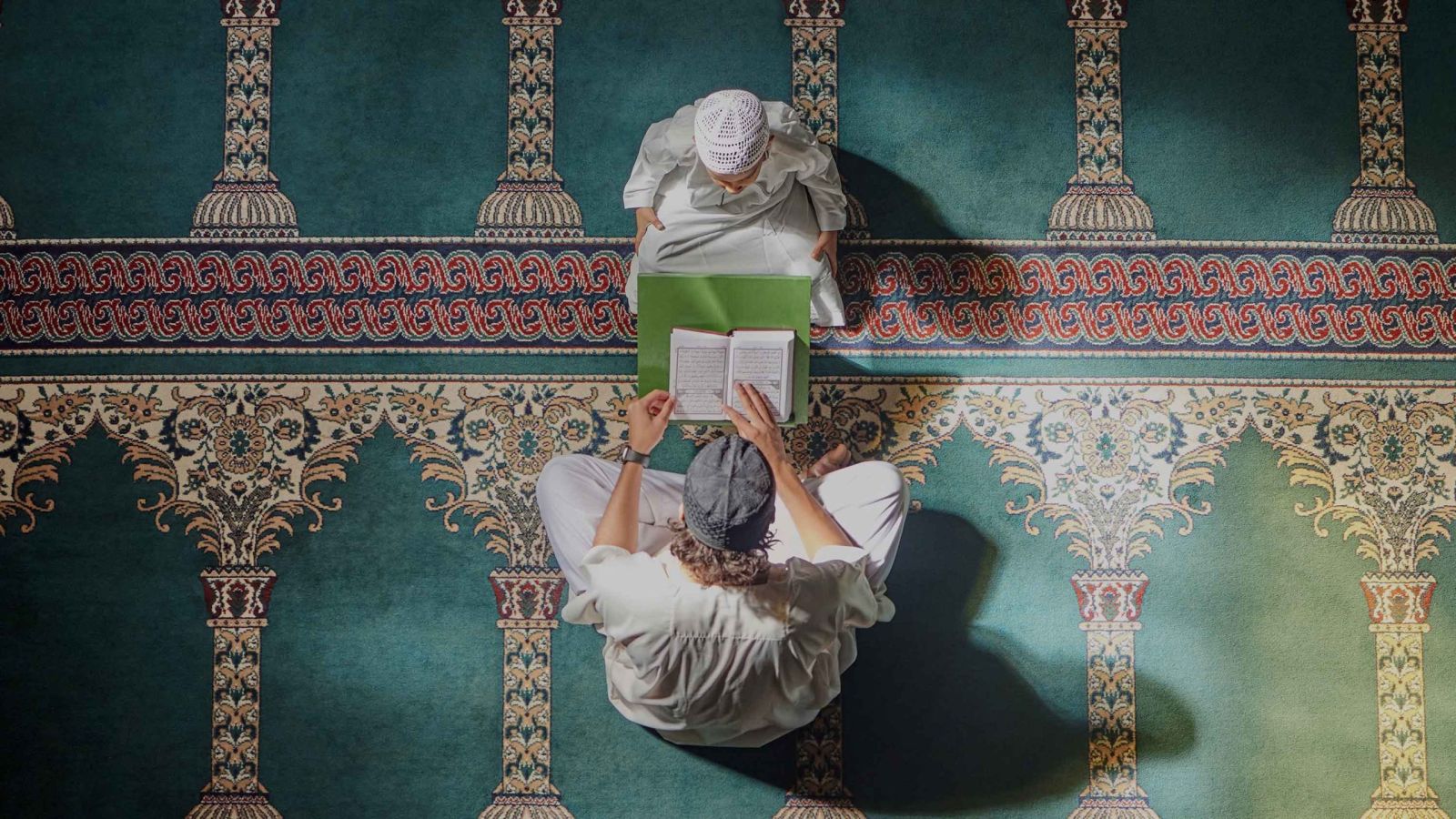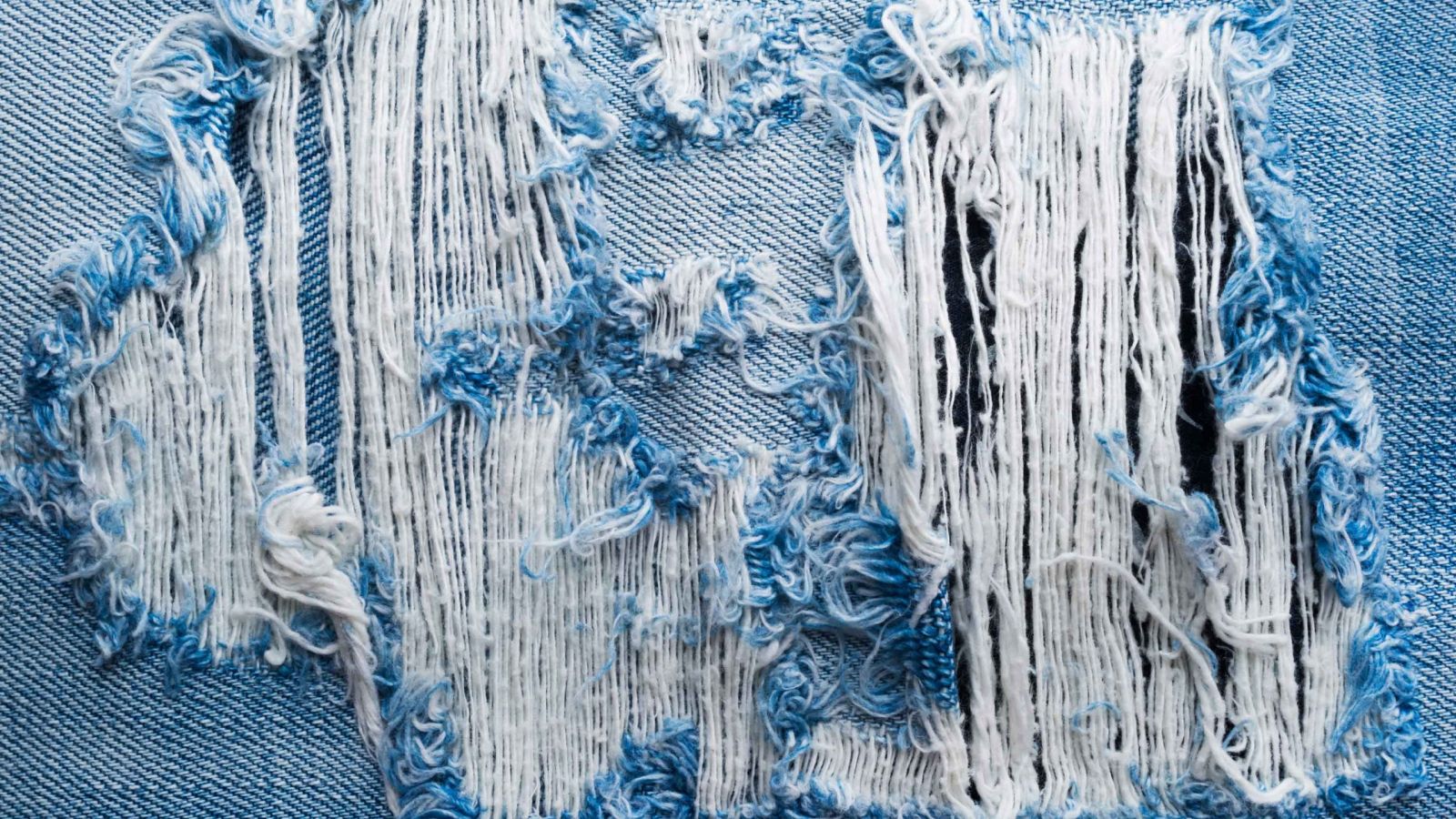The Ruling on Praying in Najs Clothing or in a Place of Najāsah (Impurity)
Imām Muḥammad ibn Ṣāliḥ al-ʿUthaymīn


The Meaning of Najs Clothing
The person who prays in najs clothing must repeat his ṣalāh. The meaning of ‘najs clothing’ is either clothing that is najs due to the material from which it was derived like clothing made from the skin of a predacious animal or clothing that has been marred by an amount of najāsah which may not be overlooked. If marred by a very small amount of najāsah which may be overlooked, then it is permissible to pray while wearing such clothing. For example, a small amount of blood that is poured forth from slaughter.
The evidence for the obligatory nature of repeating the ṣalāh is the evidence already mentioned which proves that clothing worn during prayer must be pure.1
The Six Circumstances of Praying with Najs Clothing and Their Rulings According to the Ḥanbalī Madh`hab
The apparent stance taken by the Ḥanbalī madh`hab is that one must repeat his ṣālāh, regardless of whether he knew of the prerequisite of purity or was ignorant, or aware of the najs state of his clothing or mindless of its state, or whether he possesses other unmarred clothing or not. Here, there are six circumstances that pertain to this issue. Examples of each are as follows:
- Aware of the prerequisite of purity: A person prays in najs clothing while fully aware of its najs state, possessing the ability to purify it. The ṣalāh of such a person is invalid because he has opposed the order of Allāh and His Messenger (صلى الله عليه وسلم). Thus, he must repeat his ṣalāh.
- Ignorant of the prerequisite of purity: A person prays in najs clothing while completely unaware of its najs state, or being ignorant of the obligatory nature of purifying it. He only becomes aware after having already concluded his ṣalāh. Here, he must repeat his ṣalāh because he has failed to fulfil one of its prerequisites. Failure to fulfil a prerequisite may not be overlooked as the Messenger (صلى الله عليه وسلم) said to the man who prayed without remaining stationary in the positions of his ṣalāh: “You have not prayed”.2 He (صلى الله عليه وسلم) also said: “Allāh does not accept ṣalāh without purity”.3
- Aware of the najs state of clothing: A person prays in najs clothing, remembering that his clothing is marred with najāsah. He must repeat his prayer as well.
- Mindless of the najs state of clothing: A person prays in najs clothing while forgetful that his clothing is marred by najāsah, or has forgotten to purify it. He must repeat his prayer as well.
- Possessing no other clothing or unable to purify: A person prays in najs clothing but lacks the resources to purify it, and has no other clothing. He should repeat his ṣalāh but also pray one ṣālāh in his najs clothing [according to the madh`hab].
- Possesses other unmarred clothing: A person prays in najs clothing even though he possesses other pure clothes which he chooses not to pray in. He must repeat his ṣalāh.
The Opinion of Shaykh Ibn ʿUthaymīn (رحمه الله) Regarding the Ignorant, the Forgetful, and the One Who Has No Other Clothing to Wear
Other scholars have also said: If this person is ignorant of the prerequisite of purity, or has forgotten that his clothes is marred with najāsah, or has no other unmarred piece of clothing, then he does not have to repeat his prayer. They support this stance with the saying of the Most High:
رَبَّنَا لَا تُؤَاخِذْنَا إِن نَّسِينَا أَوْ أَخْطَأْنَا
“Our Lord! Punish us not if we forget or fall into error.”
(Al-Baqarah, 2:286)
Allāh—the Most High—said in response to this verse: “I have done so”4. This verse is encompassing, general, and represents one of the greatest and most magnanimous principles of Islām. This is because the One who has taught us this invocation is Allāh—the Exalted in Might, who has made it compulsory upon Himself to fulfil the request inherent in this invocation saying: “I have done so” as authentically narrated by Muslim. Thus, this person who has prayed in najs clothing, unaware of its state of najāsah until after the conclusion of his ṣalāh is mistaken, but has not intended to fall into this mistake. If he had been aware of this najāsah, we would say: He has intentionally fallen into error. However, in this circumstance, he has fallen into error and was ignorant of the state of his clothing. Therefore, he does not have to repeat his ṣalāh as stipulated by this great verse which forms a fundamental principle of the religion of Islām.
Regarding the Ignorant
There is another piece of evidence that may be considered as specific in its application to this issue. It is that the Messenger (صلى الله عليه وسلم), after having been told by Jibrīl (عليه السلام) that his shoes were marred by najāsah while praying removed them, but continued praying. If najs clothing whose state was unknown caused the invalidity of ṣalāh, then he (صلى الله عليه وسلم) would have repeated the ṣalāh from the beginning.
Regarding the Forgetful
As for a person forgetting that his clothing is marred by najāsah, or forgetting to purify it and praying in najs clothing, the correct opinion is that he does not have to repeat his ṣalāh. The evidence is the aforementioned verse: “Punish us not if we forget…” Another piece of evidence for this is the authentically confirmed ḥadīth of Abū Hurayrah (رضي الله عنه) in which the Prophet (صلى الله عليه وسلم) said: “Whoever forgetfully eats or drinks while fasting should complete his fast.”5 Even though eating and drinking are considered prohibited acts while fasting, just as praying in najs clothing is considered a prohibited act. So, just as the ruling is forgone due to forgetfulness when fasting, this may be analogised with forgetfulness of wearing najs clothing in ṣalāh.
[Q]: They [the Ḥanbalīs] have made repeating the ṣalāh obligatory due to the stark difference between the forgetful person and the truly ignorant one. The ignorant person is completely unaware of the concept of najāsah so should be excused. However, the forgetful person is guilty of carelessness by not immediately purifying what had been marred by najāsah. Therefore, he should not be excused. For it is from the example of guidance set out by the Messenger (صلى الله عليه وسلم) that he used to immediately purify that which had been marred by najāsah. For example, when the bedouin urinated in the masjid, he (صلى الله عليه وسلم) immediately commanded: “Pour on it a bucket of water”.6 Here, there was clear immediacy in his command. Also, when an infant had urinated in his place of dwelling, he (صلى الله عليه وسلم) immediately called for water and poured it on the affected area7. Additionally, all people are amenable to forgetfulness, especially certain people. So, what would be the answer to this?
[A]: We have not absolved the forgetful person from having to repeat his ṣalāh due to analogization with the ignorant person such that this difference between the two classes would annul our ruling. Rather, we have absolved the forgetful person from repeating his ṣalāh in connection to a completely separate piece of evidence which is the saying of the Most High: “Punish us not if we forget…”
We also say that the immediacy with which the Prophet (صلى الله عليه وسلم) purified that which had been marred with najāsah does not denote obligation of immediacy. The evidence for this is that Allāh has not obligated performing wuḍūʾ immediately after nullifying it, despite the command to perform it being more assured than the command to purify najāsah. The command to perform wuḍūʾ applies only to the person intending to pray. For example, if a person was to nullify his wuḍūʾ an hour before the time for ṣalāh, he would not have to perform wuḍūʾ immediately following this nullification. Despite the possibility that he could subsequently pray but forget that he had previously nullified his wuḍūʾ. In consideration of this, the mere act of delaying the purification of that which has been marred by najāsah is not, in actuality, representative of carelessness. If a person forgets that his clothing had been marred by najāsah, or forgets to purify it, he may be excused.
Regarding The One Who Does Not Possess Any Other Clothing
As for the one who does not possess any other pure piece of clothing, nor does he have the resources to purify the najs clothing he is wearing, we have already mentioned that the Ḥanbalī madh`hab stipulates him praying in the najs clothing and repeating his ṣalāh afterwards [with clean clothes]. This issue has three opinions:
- It is obligatory to pray in najs clothing and to repeat it again afterwards. This is the opinion of the Ḥanbalī madh`hab.
- He should pray unclothed without having to repeat it afterwards in a clothed state. This is the opinion of Imām al-Shāfiʿī and is narrated from Imām Aḥmad (رحمهما الله).
- He should pray in the najs clothing without having to repeat it afterwards. This is the opinion of the two Shaykhs: al-Muwaffaq [Ibn Qudāmah] and al-Majd [Ibn Taymiyyah; grandfather of Shaykh al-Islām] and the madh`hab of Imām Mālik (رحمه الله).
As for those who have adopted the stance that he should pray in his najs clothing and repeat his prayer, they justify their opinion claiming that covering one’s ʿawrah is obligatory. So, it is obligatory for him to pray clothed but also to repeat his ṣalāh because the clothing he would have used to cover himself is marred with najāsah.
As for those who adopt the opinion that he should pray naked and not repeat his prayer, their reasoning is that it is impermissible for him to wear these najs clothing in ṣalāh. The fact that he needs to cover his ʿawrah in ṣalāh does not stipulate the permissibility of wearing it in prayer while in this state of najs. Therefore, he should remove it and pray naked.
As for those who adopt the opinion that he should pray wearing the najs clothing without having to repeat his prayer, they say: Indeed, covering one’s ʿawrah is obligatory but his wearing najs clothing here is due to an extenuating circumstance. As he does not possess the resources to purify it, or any other piece of clothing he can wear. Thus, he has a clear and dire need to wear it. As Allāh—the Most High—said:
وَمَا جَعَلَ عَلَيْكُمْ فِي الدِّينِ مِنْ حَرَجٍ
“And has not laid upon you in religion any hardship.”
(Al-Ḥajj, 22:78)
This is the correct opinion on this issue.
As for the first opinion, it stipulates that one prays in najs clothing, seeking closeness to Allāh in clothing that is marred with najāsah, then it said to him: the ṣalāh you just prayed is unacceptable and you must repeat it. In doing so, we would have obligated the performance of two prayers—one acceptable and the other rejected. Such a stance, if one was to truly conceptualise it, he would realise that it is quite far from the truth.
Then, according to the second opinion, this person should pray naked which is even more contemptible. As conceptualising a naked man before Allāh—the Exalted in Might—is undoubtedly more detestable a sight than a fully clothed person before Him, even if those clothes carry najāsah. Allāh is more deserving of showing shyness before.
The Ruling of the One Forced to Pray in a Place of Najāsah
As for the one who is held in a place of najāsah, unable to extricate himself from it to a place of purity, to where he is compelled to remain in it, then the ruling of this compulsion is that it has been forgone and overlooked from this ummah. As the Prophet (صلى الله عليه وسلم) said: “Indeed, Allāh has overlooked from my ummah their mistakes, their actions borne out of forgetfulness, and what they are forced or compelled to engage in.”8
The difference between such a person and the one who prays in najs clothing is that the person with najs clothing is not being compelled to pray while wearing it. Considering this, if he was being forced to pray in clothing marred with najāsah, he may pray while wearing it without having to repeat his prayer.
[Q]: How should one who is being forced to remain in a place of najāsah pray?
[A]: If the najāsah in question is dried, then he should pray as normal. If, however, it is moist, he should pray standing, perform rukūʾ as normal, but sit on his feet when performing sujūd [i.e., the squat position], lowering his head to represent sujūd, without placing any of his limbs [other than his feet] on the ground. As evidenced by the saying of the Most High:
فَاتَّقُوا اللَّهَ مَا اسْتَطَعْتُمْ
“So keep your duty to Allāh and fear Him as much as you can.”
(Al-Taghābun, 64:16)
This is because if the najāsah is moistened, one should avoid it to the extent of his abilities. Here, the least amount of contact he can possibly have with najāsah is to sit on his feet. He should refrain from sitting fully either with his right foot vertical [mutawarrik] or horizontal [muftarish; i.e., normal way of sitting in ṣalāh]. As, if he was to sit, his clothing, ankles and knees would become marred by the najāsah on the ground. It is obligatory to reduce one’s exposure to najāsah as much as possible.
Endnotes:
1 Translator note: Please see ‘The Prerequisites of Clothing Worn in Prayer’ , Imām Muḥammad ibn Ṣāliḥ al-ʿUthaymīn, prerequisite no. 2 for evidence of this point.
2 Authentic: narrated by al-Bukhārī: 757 and Muslim: 397.
3 Authentic: narrated by Muslim: 224.
4 Authentic: narrated by Muslim: 125, 126.
5 Authentic: narrated by al-Bukhārī: 1933 and Muslim: 1155.
6 Authentic: narrated by al-Bukhārī: 220 and Muslim: 284.
7 Authentic: narrated by al-Bukhārī: 222 and Muslim: 286.
8 Authentic: narrated by al-Bayhaqī: 2584 and graded authentic by Shaykh al-Albānī in al-Taʿlīqāt al-Ḥisān: 7175
Source: Al-Sharḥ al-Mumtiʿ 2:177-183
Translated by: Riyāḍ al-Kanadī

















